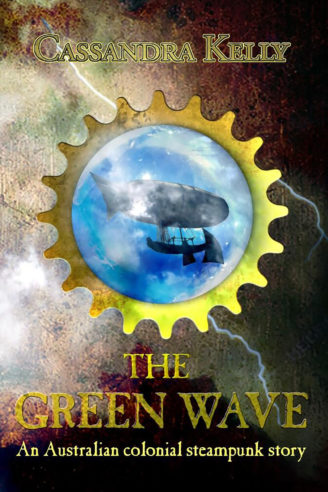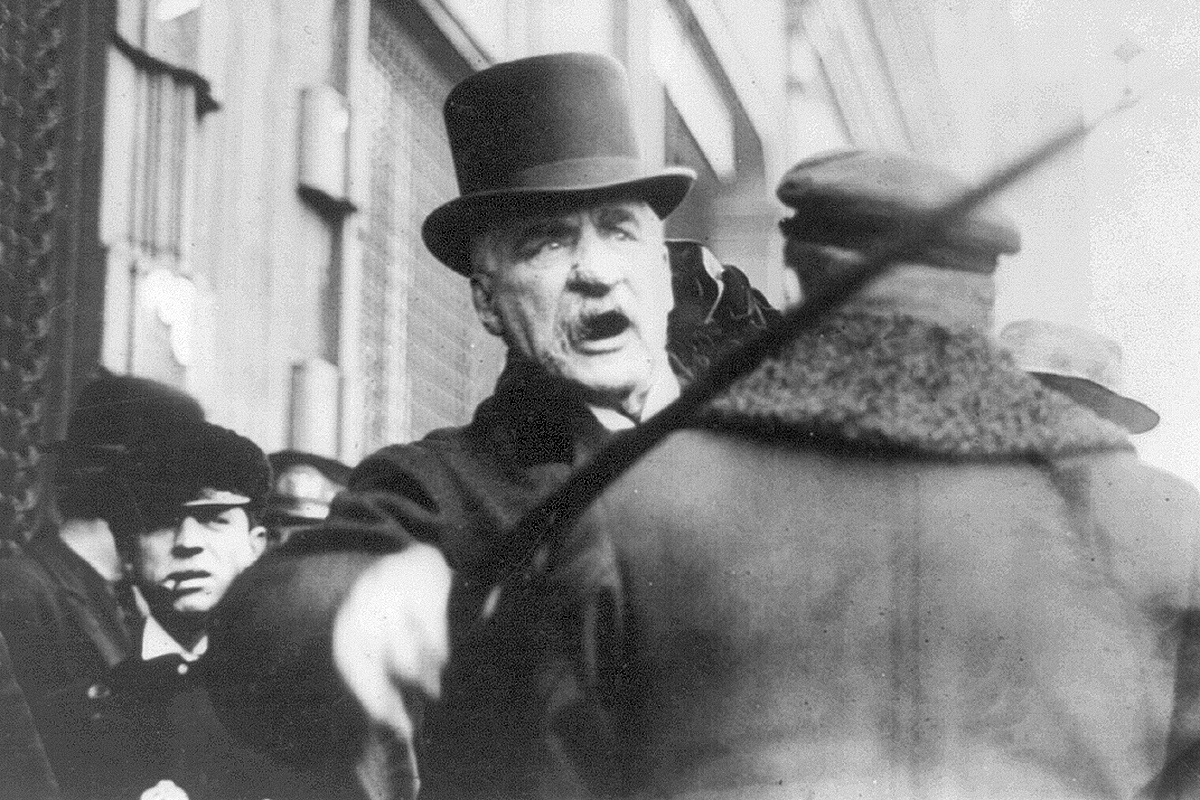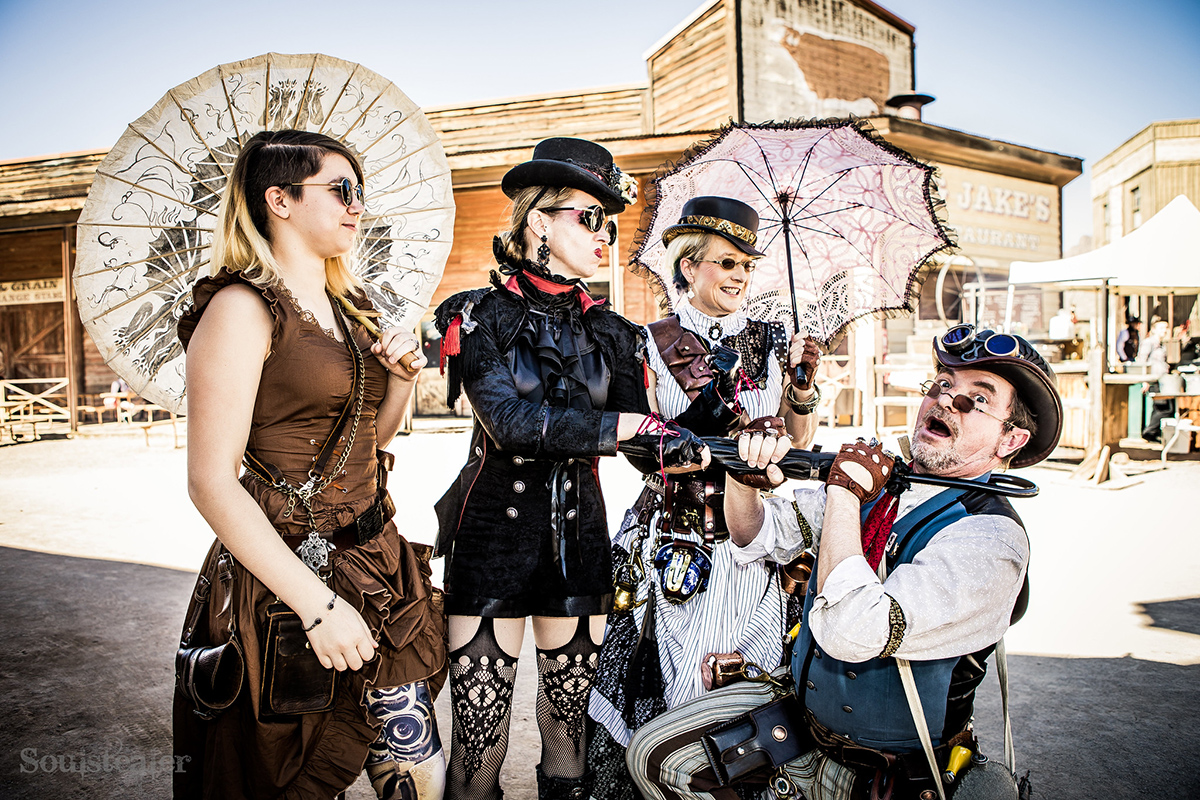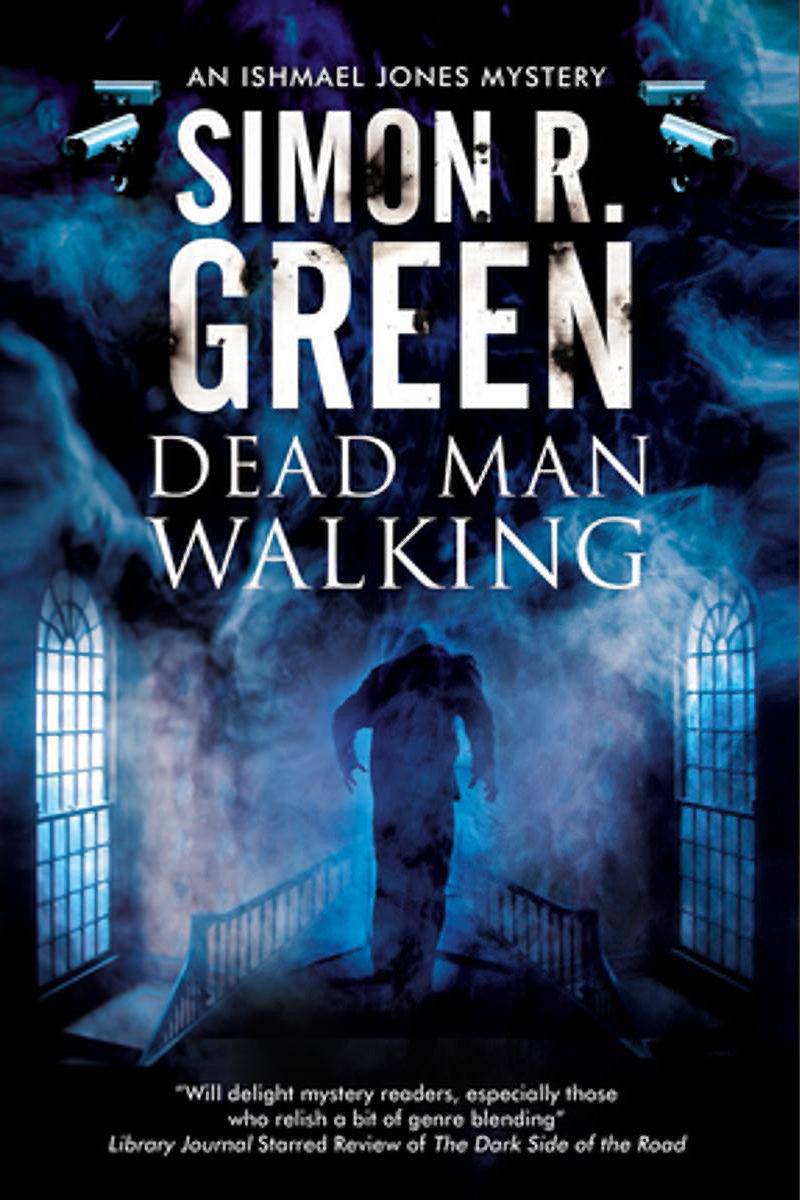Cassandra Kelly’s debut novel, The Green Wave, is a most enjoyable one, taking us on a wild adventure with Rosalyn Flynn, Reverend to the Enlightenment Church and airship pilot, from Canterbury to Sydney and far beyond. Along with a cast of characters that are well fleshed-out and equally interesting as the Reverend herself.
Even though the backstories of the characters are kept to a minimum, we are given ample information about them not to be left with tons of questions. Action scenes are descriptive, but short enough to keep you from becoming bored with detail. The author has definitely found that fine line between going in-depth and being overly descriptive.
Another plus is the way Kelly has organized her chapters. Each is quite short, so you can cover one or two even when you have limited time to read. They also each leave off at a point where the story is easily picked up again, which is a trait I wish more books possessed.
The story itself — young girl goes on a mission to find a lost explorer with her companions in tow — might not be original, but it is heaps of fun. The events and encounters along the way keep it fresh and interesting until the very end. Which is conveniently set up as both an ending and an opening for a sequel, which I hope will happen.
I shan’t delve too deeply into the events of the novel, as I want to keep this review spoilers-free. I will warn that you need to be able to stomach era-appropriate but now-outdated views on society and people of color.
The author is up-front about this being a colonial story. It’s in the subtitle! We’re in the age of exploration, when convicts were banished to the antipodes and people traveled to Australia to build a new life and more often than not seek their fortune. On land stolen from the Aboriginal people. Kelly accurately describes many of the horrors the colonial settlers inflicted upon the indigenous people of Australia as well as the derogatory language they used to describe them.
In any mix of history and fantasy, this is hard to avoid. Especially when you are trying to describe that people have evil in them. But I can also see how this might make some readers uncomfortable. A forewarning may be in order, so consider yourself forewarned. Even though this is by no means the focus of the book, and contact with the Aboriginal people is by no means all bad. Quite on the contrary!
And that’s as much of a spoiler as you’ll get out of me.
I hope you can see this as a work of fiction worth your time, for it really is quite good. The Green Wave is a prime example of a novel describing the passion for exploration and gathering of new knowledge that doesn’t shy away from touching the dark deeds necessary to further certain classes of people in Victorian times.
Let there be a sequel!






1 Comment
Add Yours“Another plus is the way Kelly has organized her chapters. Each is quite short, so you can cover one or two even when you have limited time to read. They also each leave off at a point where the story is easily picked up again, which is a trait I wish more books possessed.”
Sounds like an author after my own heart! I love short chapters, both as a reader and writer, a taste I picked up from SF author Arthur C. Clarke originally, and more recently James Patterson.